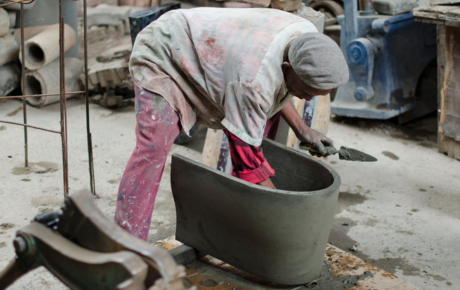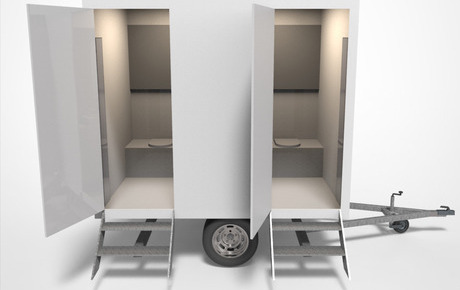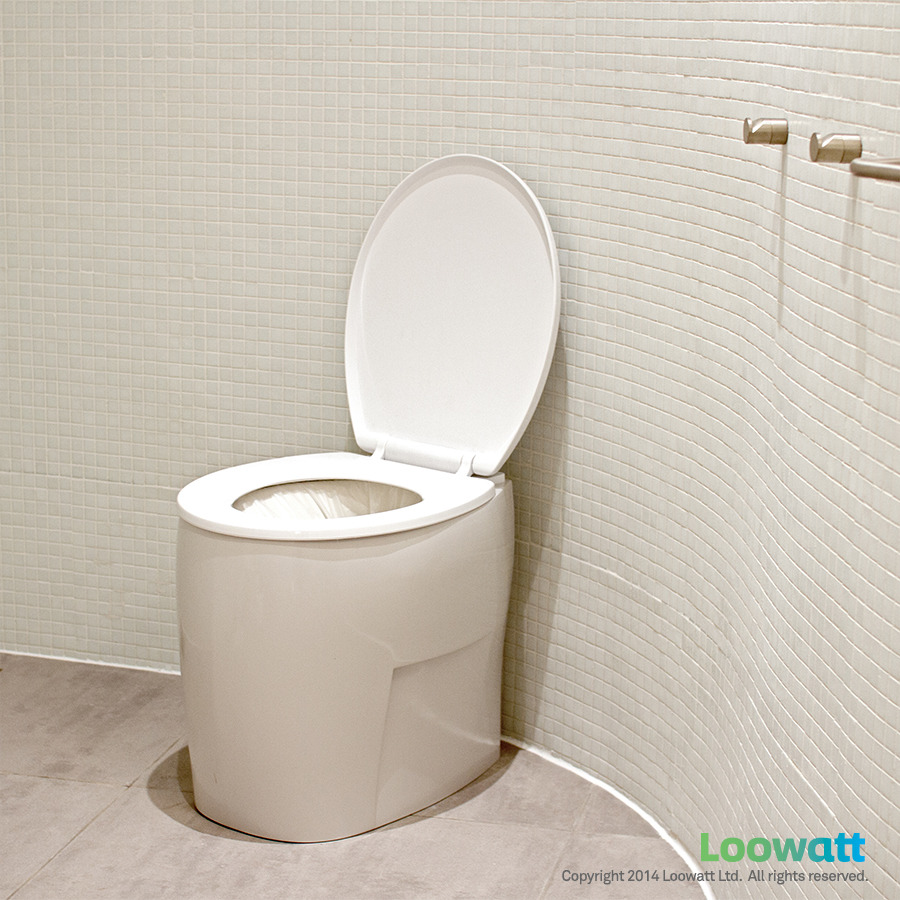It was fairly early in her masters project that Virginia Gardiner realised that she might have a transformative business in her hands.
Completing an MA in industrial design engineering at the Royal College of Art, Gardiner had turned to the global issue of clean sanitation as inspiration for her project.
‘We were definitely pushed in a kind of “blue sky” way to propose ideas that had real commercial possibility,’ she explains. ‘So even at that stage, which was super super early, I was thinking about it that way.’
The business that eventually took shape is Loowatt, a venture which is developing waterless and energy-generating toilet systems.
It was a video piece compiled by Dwell magazine that thrust Loowatt into the limelight and attracted the early-stage backing that allowed it to build up a little steam.
From 2008 when Gardiner was completing her MA to present day, Loowatt has achieved impressive growth in its efforts to bring its product to two very different markets and was crowned Innovator of the Year at the GrowthBusiness New Energy & Cleantech Awards 2014 at the end of April.
More on the New Energy & Cleantech Awards
- Mark Robinson’s journey from early data to cleantech trailblazer
- ETF’s quest to find returns from resource efficiency
- Investors, entrepreneurs and businesses unite at awards
Early days
For Gardiner and Loowatt the beginning was all about developing its intellectual property (IP) so that it had something to take out to market.
Loowatt’s toilet uses a mechanical sealing unit to hold human waste within a biodegradable film – an efficient and odor-inhibiting way. This can then be stored in a cartridge for weekly or daily emptying.
Not stopping there Loowatt has also devised a way for this waste to be treated through anaerobic digestion, creating biogas that can then be put to work as a fuel or digestive to produce fertiliser.
Because of its two-pronged approach, Loowatt has been able to target its product at markets which have a need for a waterless toilet as well as those looking for an off-grid power source.
Funding to date has been helped by two tranches of grant finance from the Bill & Melinda Gates Foundation. The first wave of capital from the capital, back in 2011, was awarded to support a pilot programme in Madagascar.

A concrete fabricator finishes a cast toilet in Madagascar
When quizzed on why Madagascar, Gardiner says, ‘We picked it because one of our first investors was also a resident there, so it made sense to tap into his network and there was also a definite need there.’
Loowatt’s initial contact with the Bill & Melinda Gates Foundation came about after the organisation issued a call to arms in 2011 for projects solving problems associated with sanitation and clean water.
‘At that stage they consider projects to be quite high risk, so the process [of securing funding] was simple – you just have to submit a good proposal,’ she explains.
‘Their relationship further developed as we began to work on the project and they had a toilet fair which we attended that was a great success and we then got follow on grant funding that had a more iterative process to it.’
On the up
Along the course of its journey Loowatt has also been successful in tapping into government support, and became a Technology Strategy Board SMART grant funded company.
That finance would play a pivotal part in fuelling the other string to Loowatt’s bow, an alternative to the notorious chemical toilets that dominate UK festivals and events.
Loowatt’s event system, set to be completed in 2014, will be trailed at festivals across the country to solve the problem of providing mobile sanitation and off-grid renewable energy sources. The project secured a partner in Thames Water and also has its eyes set on moving onto construction sites and into schools.

The festival offering is designed to replace chemical toilets
Gardiner adds, ‘The core technology at the heart [of both streams] is the same. The treatment means that the research and development (R&D) is complementary.
‘Both markets are important in terms meeting revenues. The portable toilet market has a real need for innovation, but we’re not trying to sell the product to people with apartments in London.’
Ultimately, Gardiner says that it is in the interest of meeting objectives in developing countries to meet revenues and become a sustainable company.’
Away from the festival scene, a second grant from the Bill & Melinda Gates Foundation announced in August last year is expanding its toilet systems in Madagascar and Sub-Saharan Africa.
Central to this a goal to have 100 waterless toilets in use over a two-year period – serving some 3,000 people.
On the challenges of building a company with bases in two very different continents, Gardiner says that her team has had to work hard on its communication.
‘As the team has grown in the last couple of years we now have over 15 including consultants an interns,’ she says.
‘Managing our capacity and work we do means we have had to put in a lot of strategic framework to manage the business properly. That includes frequent communications between the UK and Madagascar.’
In a world that every day places new demands on water, fuels and other resources, Loowatt has developed an innovative technology that not only looks set to bring about significant change but also be self-subsisting.






